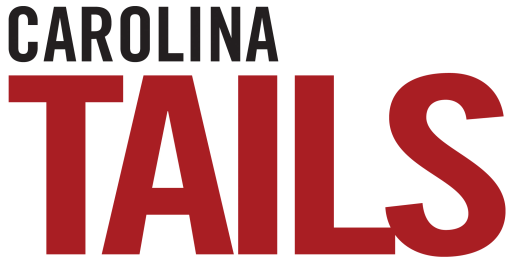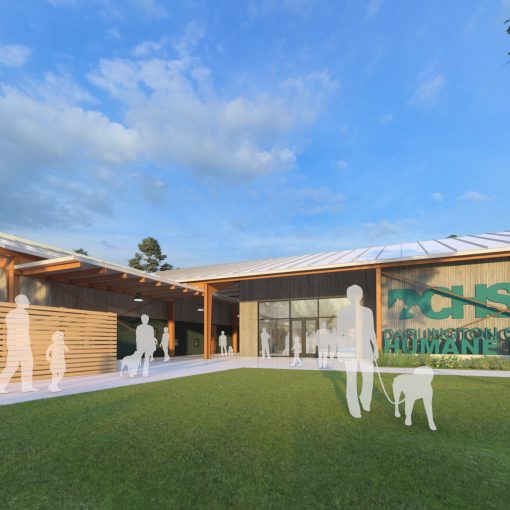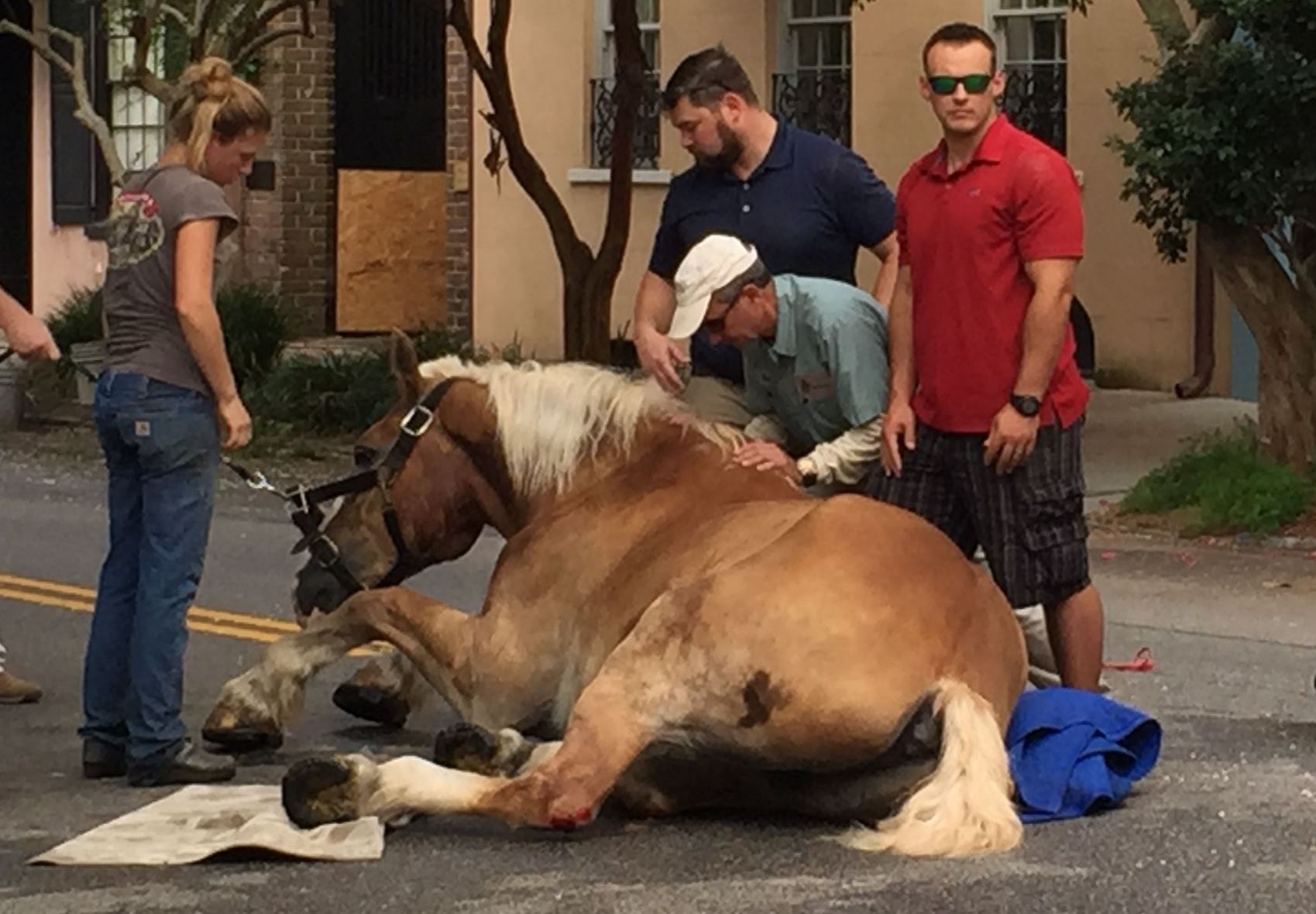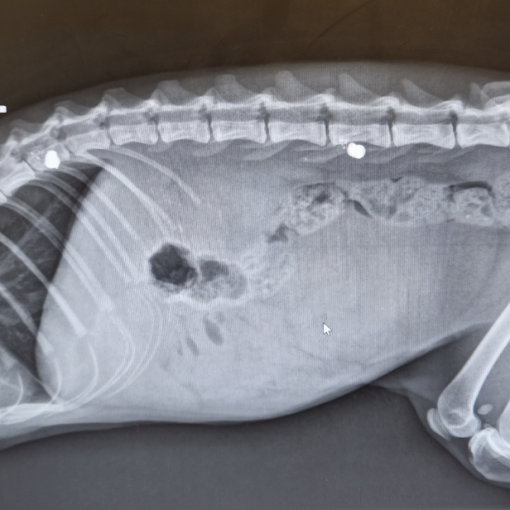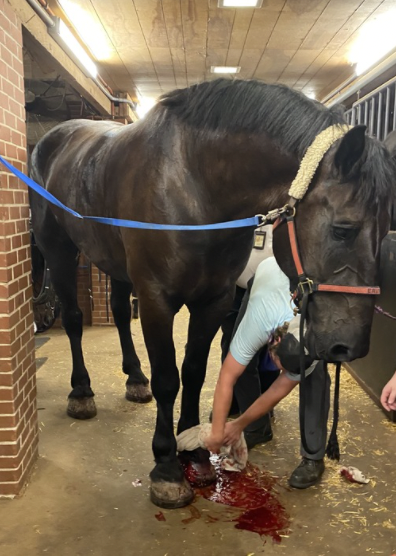
By JOE ELMORE
CHARLESTON ANIMAL SOCIETY PRESIDENT AND CEO
In the mid-2000s, the City of Charleston requested Charleston Animal Society to be a member of a special committee to recommend regulations for the carriage horse enterprise in Charleston following a whistleblower’s complaints and photos of inhumane conditions and practices. The City recognized the recommended regulations as in the “best interest of protecting the health, safety and welfare of the animals used in the tourism industry and the motorists and pedestrians using the public right-of-ways along with residents and tourists of the City.” In 2015, Charleston Animal Society formed a committee to address the numerous complaints it consistently received regarding the working conditions of the animals. It was discovered that many of the fundamental regulations were neither followed by the operators nor enforced by the City. Since that time, the Animal Society has worked with other advocacy groups recommending reform to promote humane working conditions and fewer people and animals injured in this tourist attraction.
In August 2020, a local nonprofit advocacy organization, Charleston Carriage Horse Advocates (CCHA), introduced a common sense safety measure, supported by the Preservation Society of Charleston, neighborhood assocations, Charleston Animal Society and others, to City Council, which would enhance the safety of citizens (both adults and children), tourists, carriage industry employees and carriage horses. Nothing in the measure would adversely impact the profits generated from the tourist attraction.
Why enhanced safety measures?
Since 2016, CCHA states that they are aware of at least 120 documented safety related incidents in Charleston. This is an alarming statistic, especially since yet another horse was killed last year and this tourist attraction has resulted in countless injuries to both humans and animals, including the death of both. With the population density continually increasing in the downtown area along with accelerating construction, which is a major contributing factor to many carriage incidents since equines are so easily spooked, significant precautions should be taken, as they have been in other cities, to increase the safety of this tourist enterprise.
However, without the advocacy of organizations such as Charleston Carriage Horse Advocates, Charleston Animal Society and others, progress on this issue would be stagnant. For the record,Charleston Animal Society has never called for a ban on this enterprise, only for significant reform guided by an independent study. Note: An increasing number of cities in both the United States and overseas have banned this enterprise altogether.
Six years ago, following a horrific incident where a carriage horse lay helpless on the street for nearly three hours in July, the Animal Society requested the City to conduct an independent review of the incident for the purpose of preventing future incidents.
A review, albeit not independent, was conducted with recommendations – that was in 2015. Most of the common sense recommendations, such as equine first responder training and equine triage kits, structured training of carriage drivers and horses, driver competency examinations, equipment safety checklists, and Tourism Commission review of health care and management requirements to ensure up- to-date practices consistent with national standards were not incorporated in the ordinance and fell by the wayside. Yet, incident upon incident continued to occur.
Occasionally, when safety measures were addressed by members of the Tourism Commission, those members were admonished by the Tourism Director, carriage industry and others. Yet, both people, including children, and horses continued to suffer injury, to the degree that a horse last year was killed.
While Charleston Animal Society, which was founded nearly 150 years ago to prevent cruelty to animals, specifically addressing the plight of working animals, has recognized Charleston’s carriage enterprise as the harshest working conditions of this type for equines in the country, the Charleston Carriage Horse Advocates has consistently brought pressure on the City and industry to reform, not ban, this tourist attraction.
Hence, in trying to work with the City and industry, CCHA, at its own cost, researched safety measures and submitted a common sense safety ordinance to City Council a year ago, which the Animal Society and others endorsed.
City Council referred the matter to the Tourism Commission. The spirit of what was a citizen-led, grassroots effort to provide for a safer environment downtown was the expectation, and commitment by some elected officials, for a process that would provide real, sustained dialogue, which is why a tourism commission exists. Instead, the process was quickly slanted against the residents and citizens initiating this democratic right – citizen advocacy which is supposed to be a basis for our democratic ideals and system of government. Not only did several members of the Tourism Commission admonish citizens, City Councilmembers Robert Mitchell and Marie Delcioppo joined the fray with attacks and ran interference for the carriage industry.
Note: Both Councilmembers have received thousands of dollars in political campaign dollars from the carriage companies and owners. It is not only sad but disgusting that these appointed and elected individuals would work to deny citizens a level playing field to forward change in the interest of building a safer community for residents, tourists and the working animals adhering to the spirit of why the City Tourism Code was created as stated in the Code.
Lest we (they) forget, there would be no women’s rights, no civil rights, no gay/ lesbian rights, no historical preservation, no environmental protection and no animal protection without citizen advocacy.
Expecting to make a presentation of their recommended ordinance in full context as had been done in past Tourism Commissions, CCHA was not allowed to make a full presentation to the Tourism Commission and was relegated to public comment opportunities, mostly in two- minute allotments interspersed with other public comments, in various committees where the ordinance was parsed. There was no opportunity for meaningful dialogue with the Tourism Commission.
City Council was worse, relegating participants to 60 second and 30 second citizen participation comments in August and September with the September meeting not allowing in-person attendance.
CCHA’s proposal focused on drivers, carriages, children and transparency and included common sense measures.
Is there any reason why we shouldn’t screen drivers for drugs and alcohol like any commercial vehicle operator entrusted with the safety of more than a dozen people? Is there any reason why we shouldn’t have engineers inspect carriages once a year to ensure they’re safe? Is it really a good idea to have only one driver responsible for managing an animal (while looking in the opposite direction), maneuvering streets, avoiding bystanders, overseeing safety protocols, and giving a tour when we already prohibit distracted driving in motor vehicles? The answers are fairly obvious to anyone outside the industry or those representing a city that benefits financially from the enterprise.
And, yet again, the Tourism Commission, almost entirely representative of the Tourism industry and a key councilmember who received a lion’s share of their political campaign dollars from the carriage companies are in the proverbial position of the fox guarding the hen house. To make matters worse, according to the SC State Ethics Commission, eight of the current City Councilmembers in addition to the Mayor have received approximately $23,000 from the carriage companies.
The lack of ethics, the conflicts of interest, and the failure to enforce the law abound in this system of oversight, a system whose overseers (the City, Tourism industry, carriage operators) financially benefit from the thriving enterprise.
Throughout the over-extended process, the original ordinance researched and proposed by CCHA, then reviewed and edited by City staff, was submitted to the Tourism Commission, which butchered the safety measures for mere window dressing to disguise this as impactful public policy.
Despite the unlevel playing field and multiple attempts to quell the grassroots effort of citizens trying to build a safer community for both people and working animals, a victory was achieved, much like the tiny but numerous steps made toward meaningful progress by women’s rights, civil rights, gay/lesbian rights, environmental protection and animal protection movements throughout the course of our democratic history.
We implore elected officials, public servants and appointees to reflect on President Abraham Lincoln’s words, “… government of the people, by the people, for the people…” and reject “… government of the dollar, by the dollar, for the dollar.”
The people deserve better!
